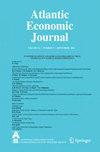谁有时间?社区大学生对经济激励的时间利用反应
IF 0.8
Q4 ECONOMICS
引用次数: 1
摘要
我们评估了基于成绩的专上学生奖学金项目对学生时间使用和努力的影响,以及这些影响是否对我们假设可能或多或少对激励做出反应的学生有所不同。为此,我们进行了一项时间使用调查,作为随机实验的一部分。在随机实验中,纽约市的社区大学学生被随机分配到有资格获得基于表现的奖学金,或者只有资格获得标准经济援助的对照组。本文通过试图进入学生如何应对金钱激励以提高他们的教育成就的“黑盒子”来贡献文献。我们发现,有资格获得奖学金的学生将更多的时间投入到教育活动中,提高了学习的努力质量和参与度,并减少了休闲时间。额外的分析表明,那些貌似更短视的学生(对未来利益的重视程度更低)对激励措施的反应更积极,但我们没有发现证据表明时间更有限的学生对激励措施的反应更弱。本文章由计算机程序翻译,如有差异,请以英文原文为准。
Who Has the Time? Community College Students’ Time-Use Response to Financial Incentives
We evaluate the effect of performance-based scholarship programs for post-secondary students on student time use and effort and whether these effects are different for students we hypothesize may be more or less responsive to incentives. To do so, we administered a time-use survey as part of a randomized experiment in which community college students in New York City were randomly assigned to be eligible for a performance-based scholarship or to a control group that was only eligible for the standard financial aid. This paper contributes to the literature by attempting to get inside the “black box” of how students respond to a monetary incentive to improve their educational attainment. We find that students eligible for a scholarship devoted more time to educational activities, increased the quality of effort toward and engagement with their studies, and allocated less time to leisure. Additional analyses suggest that students who were plausibly more myopic (place less weight on future benefits) were more responsive to the incentives, but we find no evidence that students who are arguably more time constrained were less responsive to the incentives.
求助全文
通过发布文献求助,成功后即可免费获取论文全文。
去求助
来源期刊

ATLANTIC ECONOMIC JOURNAL
ECONOMICS-
CiteScore
1.30
自引率
16.70%
发文量
19
期刊介绍:
The Atlantic Economic Journal (AEJ) has an international reputation for excellent articles in all interest areas, without regard to fields or methodological preferences. Founded in 1973 by the International Atlantic Economic Society, a need was identified for increased communication among scholars from different countries. For over 30 years, the AEJ has continuously sought articles that traced some of the most critical economic changes and developments to occur on the global level. The journal''s goal is to facilitate and synthesize economic research across nations to encourage cross-fertilization of ideas and scholarly research. Contributors include some of the world''s most respected economists and financial specialists, including Nobel laureates and leading government officials. AEJ welcomes both theoretical and empirical articles, as well as public policy papers. All manuscripts are submitted to a double-blind peer review process. In addition to formal publication of full-length articles, the AEJ provides an opportunity for less formal communication through its Anthology section. A small point may not be worthy of a full-length, formal paper but is important enough to warrant dissemination to other researchers. Research in progress may be of interest to other scholars in the field. A research approach ending in negative results needs to be shared to save others similar pitfalls. The Anthology section has been established to facilitate these forms of communication. Anthologies provide a means by which short manuscripts of less than 500 words can quickly appear in the AEJ. All submissions are formally reviewed by the Board of Editors. Officially cited as: Atl Econ J
 求助内容:
求助内容: 应助结果提醒方式:
应助结果提醒方式:


